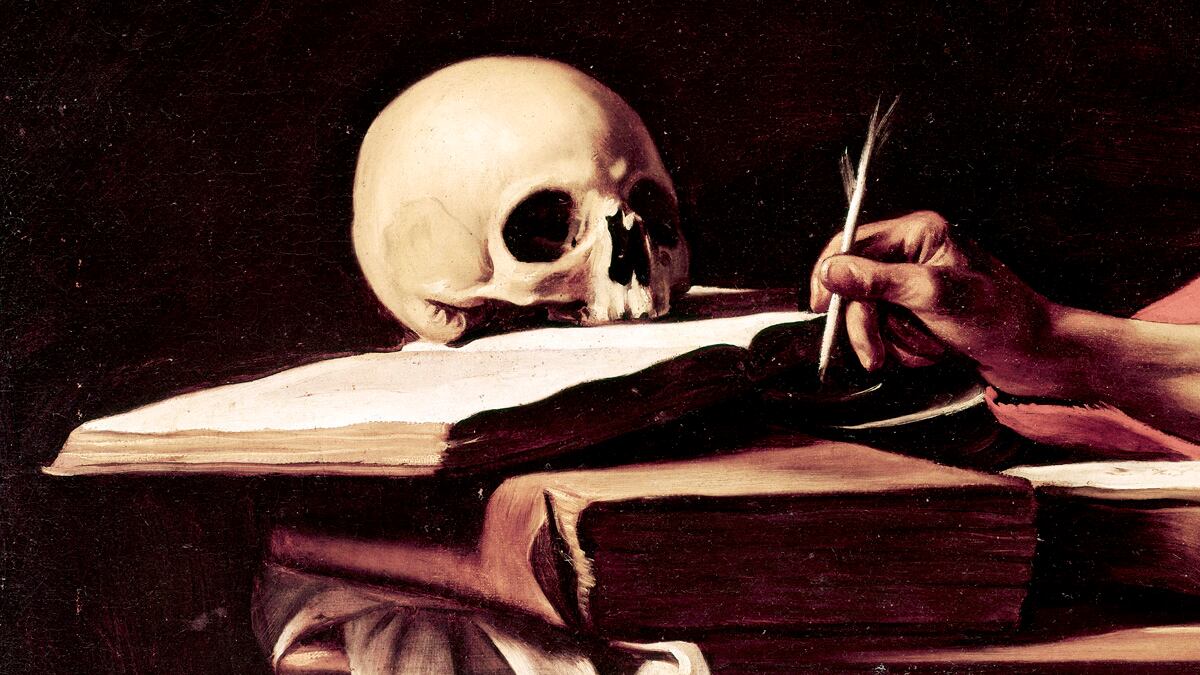It’s a good time to be a horror fan. Vampires, zombies, and their ilk, in their seemingly unstoppable spread across the culture, are shedding the ghettoization of genre and striving for respectability alongside mainstream dramas. When The Walking Dead came to AMC last year, critics questioned whether it belonged with the likes of Mad Men and Breaking Bad. But it looks like the zombies made it: It was renewed for a third season after the second debuted to the largest basic-cable audience ever.
Monsters have been climbing up the literary hierarchy as well. When the first installment of Justin Cronin’s vampire saga, The Passage, came out last year, it was marketed not as pulp genre fare but as a serious novel, with emphasis on Cronin’s literary bona fides—his degree from the Iowa Writers’ Workshop and his PEN/Hemingway award. Last summer Glen Duncan gave us an erudite werewolf coping with ennui as he evades assassination by the heirs of Van Helsing, and Benjamin Percy, author of the acclaimed short-story series Refresh, Refresh, is working on a werewolf novel of his own, called Red Moon, the story of persecuted Lycans and a clash between xenophobic civilizations.
Now, with Colson Whitehead’s Zone One, readers looking for a literary zombie novel are no longer limited to Jane Austen mashups. The book, released last week, takes place years after a zombie apocalypse and focuses on Mark Spitz, a survivor who’s been assigned by the provisional government to clear the remaining monsters out of lower Manhattan.
The running, biting zombies—Whitehead calls them “skels”—have already been killed by the Army, so what’s left are “stragglers,” listless zombies who haunt places important to them in their past lives. This makes Zone One a more ruminative and melancholy zombie story than most, but it’s firmly within the traditions of the genre. Like George Romero, who used zombies as a foil for racist mobs and obsessed consumers, Whitehead plays with the parallels between zombies and allegedly unique humans who behave in ways that erase their individuality. But Whitehead brings to Romero’s allegorical tradition a keen eye for cultural minutiae: Spitz is constantly classifying the stragglers according to dress and hairstyle and home decor, extrapolating the shows they likely watched, the drinks they drank, and the hopes that brought them to Manhattan. Not that Zone One is all social criticism. Whitehead, again true to the genre, relishes gore and describes it with gruesome vividness.

The tropes and traditions of the zombie story are a recent development, but there’s a long history of great writers taking up other scary supernatural genres. Edith Wharton and Henry James were connoisseurs of the ghost story, the dominant horror tradition of their day, and wrote some of the best ever written. Mary Shelley started writing a ghost story but ended up with Frankenstein. More recently, Beloved was a ghost story.
Yet it seems as if we’re currently in the midst of an explosion in literary horror. One possible explanation is that writers like Cronin and Whitehead grew up during a golden age of horror that saw the release of Romero’s Dawn of the Dead and the beginning of the Halloween and Alien franchises, among many other great and varied horror films. Both authors cite the movies and comics of their childhood as the inspiration for their turn to the genre.
“I grew up as a horror fan,” says Whitehead in an interview, “It was those influences that made me want to be a writer, to sit at home and make up stuff all day.” Zombies in particular had a powerful effect on Whitehead, and he says he always knew he’d write a novel about them one day. “Some folks have anxiety dreams about appearing in front of a class naked; since I saw Dawn of the Dead in junior high, my anxiety dreams have been zombie dreams.”
When respected writers cross over into horror, the decision is amplified by the publishing industry. “We live in a high-concept time,” says John Schoenfelder, the editor of Little, Brown and Co.’s new suspense imprint, Mulholland Books, and the publishing industry isn’t immune. Publishers are attracted to high-concept books that they think can grab an audience by premise alone, and with horror in vogue, a respected writer’s foray into horror is more likely to be trumpeted as a major literary event. And publishers will pay more for such a book, creating an additional incentive for writers who might be tempted to dabble in horror. Benjamin Percy’s werewolf-book proposal sold for $500,000 and was immediately optioned for a film.
The publicity makes it tempting to overstate the significance of genre crossovers. All genre boundaries are porous, and the boundary between horror fiction and literary novels is especially so. “Horror as a genre has always been a field that tends more toward poetic license, the plumbing of in-depth psychology, and a revelation of personal fantasies that align with literary writing and poetic writing in a way that is slightly different than other more straightforward genre categories,” says Schoenfelder.
As a genre, horror novels stake out metaphysical terrain. They’re written to thrill, but they do so by playing with our understanding of what makes us human, what happens after death, or the way we cope with loss. Cronin takes this angle when explaining his interest in vampires. “The vampire narrative deals with the fundamental question, the basic human question, and that is, what part of being human is defined by the fact that we’re mortal?” he told The New York Times. For Whitehead, “The true horror for me is that overnight suddenly all the people you’ve known and loved can become monsters, and that people underneath the veneer of civilization or love or any kind of affiliation are kind of monstrous creatures.”
Scott Spencer sees his horror debut, Breed, as a break from his past work, as his pseudonym, Chase Novak, might suggest. He says the novel’s “main purpose is to entertain, and the main energy goes into storytelling.” At the same time, it deals with topics that would be at home in a “Scott Spencer” work: aggression beneath the surface of seemingly ordinary relationships, lives irrevocably warped by a single decision. But in the interests of “really letting the story rip,” he decided to make Breed the story of a well-to-do Manhattan couple transformed into monsters by the use of an experimental fertility treatment.
The new issue of the literary quarterly Granta collects stories that exist on the murky boundary between literary and horror genres. Don DeLillo writes about a reclusive Manhattan moviegoer who gradually finds himself stalking a fellow cineaste from theater to theater. Roberto Bolano recounts a schlocky French zombie movie scene by scene. Paul Auster writes about his mother’s death, and Will Self recounts an illness that forced him to undergo repeated bloodletting. As varied as the authors and their forms are, they share what editor John Freeman calls “a certain suspenseful beat and pulse” that echoes more traditional genre horror.
Right now, Freeman says, if you define horror widely enough, it’s everywhere. “We live in a culture absolutely saturated with violence,” he says, whether it’s in the form of zombies and vampires or in conflict reporting or memoirs of illness. To quarantine horror in a genre is to ignore how much of the culture revolves around things we’re afraid of, he says. And the ubiquity of horror, and the crossover of literary writers into the genre, Freeman says, is nothing to despair over. “It’s a way to sublimate the fears we have as humans, and it shows a great belief in the power of narrative to both sublimate those fears and to help us ask the questions they raise.”






